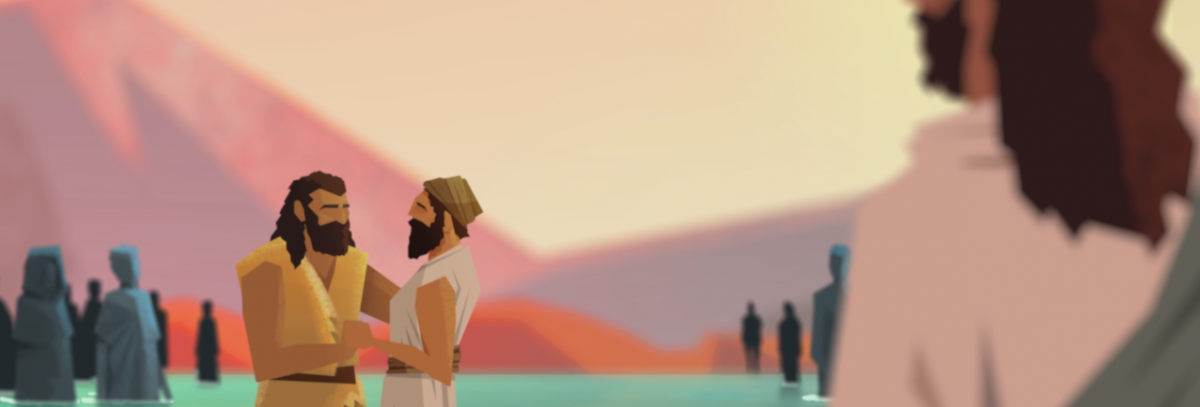“But if I drive out demons by the Spirit of God, then the kingdom of God has come upon you.” (Mat. 12:28)
This is one of the favorite proof texts Amillennialist or Anti-premillennialists, those who deny the coming future Kingdom. For them it means the Kingdom is already here, right now.
It has a parallel in Luke 11:20 which is be treated here: Is the Kingdom of God already in our midst?
But why do we say that they used this passage as proof text? That’s because it’s a cherry picked passage, taken out of its whole Matthean context.
By itself they made it appear as if Matthew believed Amillennialism or the Lord himself taught an Amillennial eschatology. But this quick survey of Matthew will prove that the Kingdom is still future.
Firstly, Jesus taught his disciples to pray to the Father, “Your kingdom come, your will be done, on earth as it is in heaven.” (Mat 6:10; Luke 11:2).
[Watch John Piper’s exposition on what it means to say “Your kingdom come” in Desiring God website.]
Why would they pray, “your Kingdom come… on earth” if what the Lord meant in Mat. 12:28 is, “the Kingdom is already here, right now”? Why even pray for it to come if it’s already here?
Secondly, in Mat. 7:21 Jesus said, “Not everyone who says to me, ‘Lord, Lord,’ will enter the kingdom of heaven, but only he who does the will of my Father who is in heaven.” If the Kingdom is already here why even say, “Not everyone… will enter the Kingdom”?
Also in Mat. 18:3 where he said, “I tell you the truth, unless you change and become like little children, you will never enter the kingdom of heaven.”
Why use future tense if the Kingdom is already here? And aren’t they saying that the Millennial Kingdom began at Christ’s resurrection? If the Millennial Kingdom began at Christ’s resurrection why interpret Mat. 12:28 as if the Kingdom is already here prior to Christ’s death and resurrection?
Thirdly, in Mat. 10:7 he instructed his disciples to heal and preach, “the Kingdom of Heaven is near.” Why say it’s near (or at hand) if the Kingdom is already here? Don’t you think they should be saying, “the Kingdom is already here”?
Fourth, we read Jesus saying in Mat. 24:30 that his coming from heaven will precede judgment of the nations (Mat. 25:31-33), and only after that will the righteous inherit the Kingdom (Mat 25:34).
Aside from the many scriptures in Matthew that speak of the coming Kingdom, Mat. 12:28 is a conditional statement. It uses the “but If” clause (“and if” in other translations). We find it used also in Mat. 5:13; 6:15, 23; 21:25; 23:16, 18:
"But if the salt loses its saltiness..." (Mat. 5:13) "But if you do not forgive men their sin..." (Mat. 6:15) "But if your eye is evil, the whole body shall be full of darkness..." (Mat. 6:23) But if we say, 'From men'--we are afraid of the people..." (Mat. 21:25) "But if anyone swears by the gold of the temple..." (Mat. 23:16) "But if anyone swears by the gift on it..." (Mat. 23:18)
These conditional statements are assumed true only argumentatively. In fact the Lord used the “but if” clause in Mat. 12:28 to defend his ministry against those who accused him of driving out demons by the authority of Beelzebub (Mat. 12:24). By this, Jesus pointed out the absurdity of their accusations because the idea of Satan driving out Satan only weakens the kingdom of the Prince of Demons (Mat. 12:25-26). Is Satan that dumb to resort to such a futile strategy? Instead, Jesus told them that the only way to rob a strongman from his own household is to first tie that strongman up (Mat. 12:29).
This is to say that by the agency of the Lord, particularly by his ministry of driving out demons from Satan’s own dominion, the kingdom of God has already, suddenly broken through. That is what is meant when he said, “the kingdom of God is upon you.” However, although Satan now has a shorter leash, he is not yet fully bound (Rev. 20:2). There are things that must still precede the coming Kingdom (Luke 19:11; 2 Tim. 4:1).
Jesus must first go to Jerusalem to give his life as a ransom (Mat 20:28), be raised on third day (Mat. 16:21) to save his people, commission his disciples to preach the gospel of the Kingdom to all nations (Mat. 24:14; 28:19) before he appears to them in glory from from heaven, gather his elect (Mat. 24:30-31), crush all the kingdoms of the earth to pieces (Dan. 2:44), sit on his throne of glory, and judge all nations (Mat. 25:31-32). Only then will he welcome the righteous into his glorious Kingdom (Mat. 25:34).

